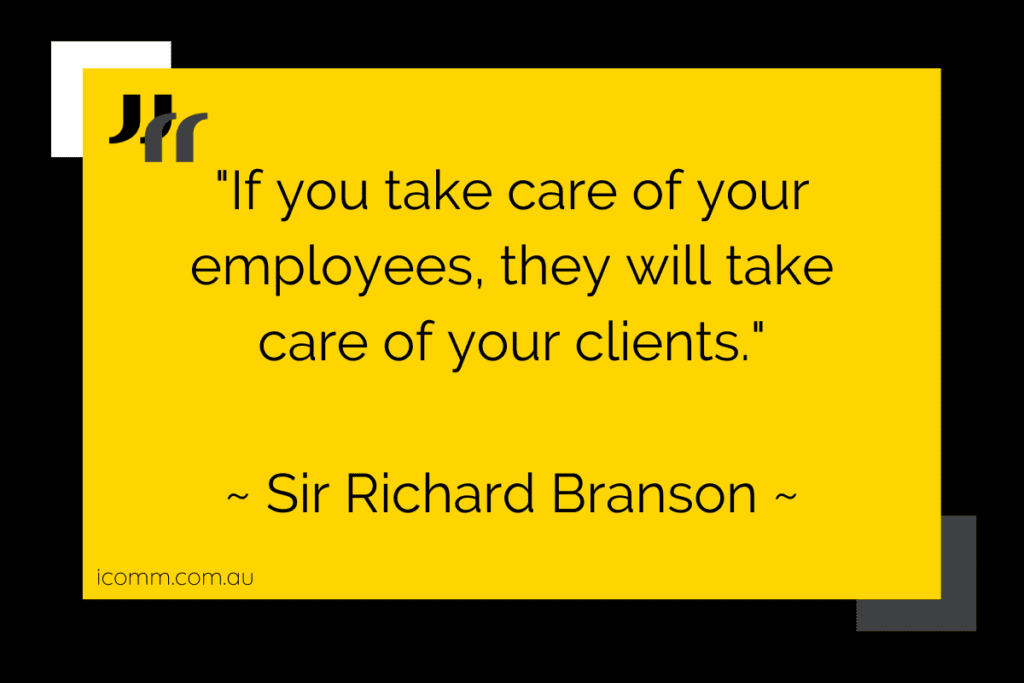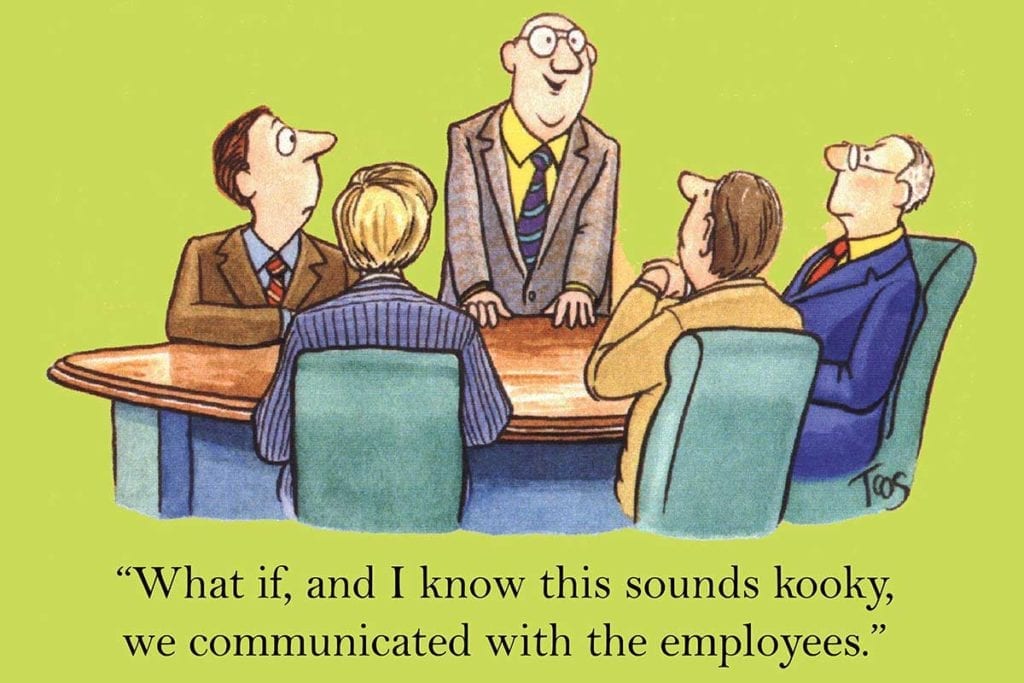Unified and Intelligent Communications technology is central to EX
Many organisations are cottoning on to the fact that employees are the cornerstone of their success. Not only that, but that their experience at work should not be taken for granted, and instead made a priority. In fact, there is a lot of research demonstrating that employee satisfaction is directly linked to a good customer experience.
The benefits are far reaching, with Gallup finding that engaged employees and business units realise a 41% reduction in absenteeism and a 17% increase in productivity. In addition, highly engaged business units achieve a 10% increase in customer ratings and a 20% increase in sales. When added together, it results in 21% greater organisational profitability.

Sir Richard has been telling us this for years...
Gallup also found that in organisations that commonly experienced high turnover, highly engaged business units achieved 24% less turnover, while in lower turnover organisations, highly engaged business units achieved 59% less turnover.
New "Employee Experience" Roles vs. "Human Resources" Roles
This is exactly why we’re seeing a transition from traditional HR roles, to new employee experience roles. There’s a definite trend where HR professionals are becoming employee experience specialists, who are charged with nurturing a workplace that varying employees, with a range of needs, want to be a part of each day.
Global recruiters, Hays, released a salary guide showing that for the 2019/20 financial year, almost one half (49%) of employers intend to increase permanent HR staff levels.
So, what strategies can you introduce to ensure your organisation is delivering the best employee experience possible so you can reap all the proven rewards?
Technology is central to employee experience
Technology, including unified communications and intelligent communications solutions, play a key role in the employee experience and creating new ways of working. HR and employee experience professionals should therefore be very involved in the selection, change management program, integration and training of any communications solution.
Intelligent communications contribute to employee experience in a number of ways, including:
Modern ways of working
Intelligent communications can help enhance the employee experience by introducing modern ways of working that deliver efficiency, productivity, collaboration, creativity and connectivity.
Attracting the best employees
Many current and potential employees see unified communications and intelligent communications as a given and won’t consider employers not offering these, as they are non-negotiables when it comes to the employee experience they expect.
This is an important factor in positioning your organisation to attract the best talent, who will in turn deliver the best customer experience and profit.
A good ongoing experience
The employee/employer relationship is two-way and employers who invest in employee experience on an ongoing basis will gain more engagement in return from employees.
This doesn’t mean installing modern technology and walking away. It means investing in technology that best supports the employee experience, updating it regularly, and offering training not just initially, but whenever employees need it.
Flexible work options
Intelligent communications have transformed the modern workplace by creating new and much more flexible ways of working. This flexibility has enhanced the employee experience as it means employees now have much more choice about the way in which they can work – they can work from any location (café, airport, home, on the road) and at times that work best for them.
Team culture
Workplace and team collaboration are no longer restricted to a time and location that employees can make themselves physically available at. Unified communications have opened up the possibilities by helping employees to connect and collaborate no matter where they are located. Ease of collaboration helps to increase the frequency in which employees are engaged with their employer and colleagues, which boosts engagement and team culture.
Retaining the best employees
An employee who feels their employer is investing in them, with technology that allows and supports them to do their best work, is proven to be much more engaged and more likely to stay with the organisation for a longer period of time.
Office environment and meeting room spaces
Intelligent communications solutions work best when integrated with a well-designed physical office space. This involves creating varying meeting or break out spaces, integrated with audio and visual technologies, that promote collaboration and creativity.
Your employee’s meeting room experience has got to be simple and easy to use. Nothing frustrates an employee more than not being able to book and start a meeting without calling IT in. Too many organisations spend a fortune on elaborate set ups that don’t have a very simple workflow from employees’ desktops. This is often because the organisation’s HR/employee experience team is not involved in these fit outs.
Never Forget: The Human Touch
While integrating technology is a vital component of the employee experience, which HR and employee experience professionals should be highly involved in, there is also a need to stay connected to employees.

"What if, and I know it sounds kooky, we communicated with the employees?"
Organisations wanting to fully embed employee experience should always invite employees to provide feedback, directly or via employee surveys, and really listen to and try to understand their needs and how they feel about working for the organisation. Employee experience is not static, and organisations need to constantly be on the lookout for new ways to improve and deliver better experiences for employees (and customers).

 Back
Back
